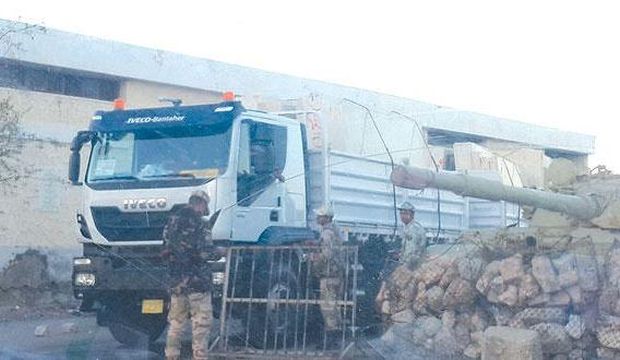
Egyptian soldiers examine papers at a crossing point on the Libyan border in November 2014 (Asharq Al-Awsat)
Benghazi, Asharq Al-Awsat—The border between Libya and Egypt has become highly porous and dangerous Asharq Al-Awsat has found, in its first installment in a series on the conflict currently raging between forces loyal to renegade Gen. Khalifa Haftar and extremist militias.
At the border crossing near the Egyptian village of Salloum on the Mediterranean, just 90 miles (145 kilometers) from the Libyan city, Tobruk, where the country’s internationally recognized parliament resides, Asharq Al-Awsat found the crossing—previously teeming with thousands of people—to be almost empty, with only 70 Egyptians and Libyans attempting the journey on the day, much less than the security presence in the area.
Both Egypt and Libya have introduced more stringent measures at their respective gates on the border, wary of the flow of extremist fighters both into and out of their countries.
Speaking to Asharq Al-Awsat at the border gate at Salloum, an Egyptian police officer manning the checkpoint said the only people he was authorized to allow into Libya were those born in Egypt’s northwestern-most governorate of Matruh, or those with a spouse in Libya or possessing documented proof of having family members in the country.
Meanwhile, journalists attempting to cross the border have been warned to avoid what have been described as “phantom” border gates or checkpoints manned by extremist groups such as Ansar Al-Shari’a or other jihadists based in the country, and to ensure their own safety by refraining from all discussions with anyone relating to politics or religion.
The first installment of a new, special series on Libya’s conflict is currently available on Asharq Al-Awsat’s Arabic website

Trackbacks/Pingbacks